Eddie Bright, director at Top 50 Indie Brobot, puts the case for regular forecourt maintenance across in a way everyone can understand: "Nobody would be happy if they went into their local pub and found that there was no beer because the pumps were out of order. The same is true of a fuel forecourt motorists want their fuel and they rightly expect the pumps to be working so they can get it."
Brobot’s maintenance provider of choice is Wayne, and the companies have been working closely together now for 25 years. Says Eddie: "Our relationship with Wayne goes back not just to when they were Wayne Dresser, but to when they were Ferranti! Today our Brobot network has 22 filling stations the 23rd is to open soon and the vast majority of them have maintenance and service contracts with Wayne. And, as other contracts come up for renewal, we invariably switch those over to Wayne too.
"As for why we have stuck with Wayne, the reasons really are very straightforward. First, their pricing is very competitive and second, the service they provide meets our expectations. I’ve had experience with many other service providers over the years, but Wayne have always come out on top, much of which can be attributed to their long-serving and experienced engineers.
"We have got some pretty old pumps on our forecourts and the work done by Wayne engineers, keeping our pumps going through regular maintenance, has meant I have not had to invest in new pumps as often as I might have had to.
"That said, we did buy some new pumps recently and again we bought Wayne products. The Wayne engineers visit our sites twice a year to do calibration. They also do maintenance and repairs as and when required, are very efficient and always deliver within agreed time constraints. If something goes wrong with a pump, Wayne will be on site usually within the working day, which minimises downtime for the site. That is crucial in this business."
David Cope, UK service director at Gilbarco Veeder-Root, believes a good maintenance provision should always go beyond a "fast fix".
"While a field-service provision is important when it comes to forecourt maintenance, there are other measures that fuel retailers should implement. Quality and safety controls, such as a wet-stock management solution, should work together with the chosen field service provider to provide retailers with the information needed to drive management decisions, act decisively to avoid unnecessary costs and ensure the integrity of their forecourts. By putting in place these measures, retailers can ensure that:
Health, safety and environmental risks are managed with early detection of potential issues significantly reducing and eliminating damage losses.
Fuel integrity is maintained with early indications of biofuel contaminations.
Field-based engineers have direct access to the diagnostic capabilities of a remote monitoring team who can ensure root cause fixes are applied in the first instance.
Variance-driven issues are quickly identified whether as a result of failing equipment, meter accuracy or slow flow rates.
Meanwhile, Fairbanks provides wet-stock management services for well-known brands including Shell, BP, Tesco and Morrisons as well as many hundreds of independent retailers. Gareth Jenkins, business account manager at Fairbanks, says wet-stock management is not limited to detecting leaks on the forecourt which is why the company has developed a range of maintenance and reporting services designed to save fuel retailers time and money.
"We differ from other service providers as we use real-time data to pin-point and diagnose the issue across the forecourt. We can then direct the retailers and contractors to ensure any issues are resolved quickly and efficiently.
"Our new tank-gauge maintenance package is proving a great success and we want to make this service available to more customers.
"The ultimate aim has to be maximising the future value of the retailer’s business and avoiding unnecessary equipment issues that can have a detrimental effect."
As well as its vapour management recovery system, which won the APEA Environmental Protection & Improvement Award 2012, Petroman Environmental provides a variety of other products and services for forecourts.
These include its pressure vacuum (PV) valve, testing of vapour recovery (VR) systems and Bio-Klenz, which helps to overcome the problems associated with ’bugs’ in bio-fuels.
Petroman can carry out an interactive or static Stage 1B test to check the PV and VR valves.
Static testing is without a tanker being connected to the system. Inert nitrogen is used to pressurise the tanks to check the PV valve operates at the required pressure and the VR valve is sealing correctly.
Using nitrogen as a safe medium for the test gives a lot more flexibility as to when testing can take place.
Pressurising the tanks also allows the testing of the whole system for leaks, from the fill points and vapour recovery pipe work above ground, at the same time.
It is a legal requirement for forecourts to have their PV and VR valves tested at the required intervals.
Bio-Klenz is a fuel additive produced and distributed by Petroman, which has been designed to tackle the problems of water in fuel that promotes bacterial contamination.
Regular use of Bio-Klenz manages this problem and can eliminate sludge and sediment if caught early enough.
Generating business
Of course, there are more than pumps to maintain on a busy forecourt. Effective sign maintenance is about saving money and making it, according to Steve Martin, managing director of Xmo Strata.
"People who don’t believe that good quality, clean, crisp, well-maintained signage generates business for filling stations don’t understand the business," he says. "Defective signage puts customers off. They’re possibly even unaware of the effect it has on them, but if the choice is evenly balanced between driving on for a few more miles, and stopping at a tatty looking service station, many will simply drive on."
Martin points to particular problems such as signs with multiple internal fluorescent tubes that have one tube replaced with the wrong type. Or where failed tubes have not been replaced at all. It leads to hot spots, cold spots and a general grubby and unkempt appearance," says Martin.
"Signage is a major part of the substance and presence of the filling station and if it looks tatty, the whole place looks tatty. And that adversely affects your revenues."
Xmo Strata believes in planned maintenance, but says this can only be done cost-effectively with the right tools.
The company uses its XmoMan project management system, which was designed and created in house. It holds details of more than 21,000 jobs and 300,000 photographs. This database gives the company the ability to proactively analyse faults by value, component, sign type, root cause and site. As a result, trends can be identified and design or process changes made to solve problems and drive down costs.
Martin says it has allowed them to save customers huge amounts of money - by accurately predicting problems, and consequently avoiding them.
One example was predicting that maintenance would be required during the early months of winter and suggesting that it was done instead in the early autumn, when the weather was better, the daylight longer, and painting work could be carried out more efficiently and at a lower cost.
"If you are spraying, for example, 8,000 dispensers, we know that at certain times of the year there will be a high probability of lower drying times, so lanes can be opened more quickly, disruption and revenue loss minimised, and a better quality job done," says Martin. Unplanned maintenance in other words, having no maintenance programme, but simply calling people out when there is a problem is too expensive for most companies, he says.
"Reactive maintenance is always going to be necessary due to extreme weather events and other issues beyond anyone’s control. But planned visits cost less for the contractors (they can group together visits in an area, buy materials in advance, and reduce logistical costs), and the savings are passed on to the customer. Having a crew come out to one area, to visit one customer, to solve one problem, is costly and there is no way around that. Planned maintenance can’t eliminate emergency call outs, but it dramatically reduces them, and the costs associated with them."
Canopies are another area that need regular maintenance. Our Great British weather means the general condition of a canopy will slowly deteriorate over time, particularly if maintenance is neglected. This will mean a canopy is less water tight. Global-MSI’s technical manager, Gareth Jones, explains: "The costs associated with repairing a leaking canopy can exceed £10,000 depending on the canopy’s size and shape, meaning there is a significant financial incentive to ensure the canopy is suitably maintained. A sound maintenance plan will ensure the canopy remains fit for purpose throughout its intended working life and keep repair costs to a minimum.
Jones says a particularly common occurrence in the UK is impact damage caused by high-sided vehicles striking the canopy fascia with their load. "A filling station owner, whose canopy has been struck by a vehicle, should be aware that the majority of UK canopies have not been designed to resist accidental impact and, in some cases, may lead to structural instability. What may appear initially as only superficial damage to the signage often has much broader implications that may compromise the integrity of the structural design that may result in catastrophic failure."
Global-MSI has a team of qualified structural engineers and surveyors who can assess the level of damage sustained and report on the necessary structural remediation work.
For canopies that have suffered severe vehicle impact damage, Jones says Global-MSI can provide site attendance anywhere within Great Britain within a matter of hours after the collision, including an installation team that will stabilise the canopy if necessary.
Car washes are a big part of many forecourts, providing crucial revenue but only when they work! PSD Codax is piloting new technology that will enable forecourt retailers to monitor all their car care equipment remotely using a single monitoring device.
The next generation of Codax Forecourt Monitor has wireless networking technology which means that retailers no longer need separate mobile data connections and log-in procedures for different pieces of equipment.
They can now monitor multiple machines around the forecourt with one Codax Forecourt Monitor utilising either an existing internet service or a mobile internet connection. Forecourt Monitor has been developed to alert maintenance staff instantly if there are problems with car wash equipment or unusual periods of inactivity so that issues can be remedied quickly and revenues restored.
The system monitors maintenance and usage, providing accurate data on everything from programme counters, cash takings and machine faults, to shampoo levels and sudden temperature drops. Maintenance staff can be alerted by text or email when problems arise while managers in head office can monitor performance data remotely through a secure web portal. They can, for example, see revenue on individual machines and check that maintenance tasks have been carried out.
Staying profitable
Graham Round, managing director of PSD Codax, says: "The system will make it even easier for retailers to ensure that all their car care equipment remains working around the clock and stays profitable. And operators no longer need to have separate mobile data subscriptions for different types and make of machines."
As well as supporting equipment that it installs (Otto Christ, Daerg and its sister companies Working Water and Wickham Gensol), the Wilcomatic Service Division supports a wide range of third-party equipment, such as Ryco, Ceccato, AIR-serve, Belanger, WashTec and Istobal.
Wilcomatic managing director, Kevin Pay, says the service division is the largest of its type in the UK, comprising four regional managers, 59 service engineers and 11 chemical technicians/water recycling engineers.
The team members are based throughout the country and linked through hand-held terminals that allow the transfer of data and photographs between them.
Each engineer is also equipped with a laptop with a unique parts identification programme to identify spare parts, electrical drawings and manuals for all the makes and models of car wash the company manages.
In addition, customers can join the 250 sites already on Wilcomatic’s web-based remote diagnostics and reporting service, Web 300.
Through this, operators at Wilcomatic’s head office constantly monitor the performance of every automatic vehicle wash that is logged into the scheme from 8am to 6pm, seven days a week, 364 days per year.
This allows technicians to identify low chemicals and performance problems that may indicate a maintenance issue that can be headed off before it becomes a repair issue, thus avoiding losses through down-time and repair costs.
"The key to a successful maintenance policy is to be proactive rather than reactive. If you wait for a machine to break down before calling in someone to look at it, it will not only probably cost more than regular maintenance, it will also mean the machine is out of action for a potentially long period, leading to loss of income," says Pay.
Partnership approach
DP Fuel Tank Services (DP FTS) has an expanding range of expert services for forecourts of all types and sizes, especially those faced with the fact or threat of leaks and bio-fuel problems.
These services include its traditional areas of tank cleaning and ultrasound testing, plus new areas provided through its expanding list of strategic partnerships with highly skilled and expert specialist companies. Their services cover tank lining, pipework, fuel testing and bio-diesel treatment.
DP FTS managing director, Kathy Early, says: "Most maintenance on forecourts these days is multi-disciplinary, covering many areas of expertise but, generally speaking, forecourt operators don’t want to deal with more than one company.
"There are two ways for maintenance companies to satisfy this demand. The first is to try to provide all the services themselves, but we believe this will inevitably lead to compromise.
"The other is the route we have chosen, which is to join with other experts in their fields and provide a complete package of specialists, but with just one point of contact. We still have some gaps in our team, but we are currently in discussions to complete the line-up in the near future."
Thwarting jet wash cash thieves
Self-service jet wash machines that take cash have become a magnet for thieves who will try to break into anything with cash inside. This not only deprives retailers of the cash itself, but also lands them with hefty repair bills for damaged equipment that is unable to generate revenue.
But PSD Codax has a solution its Codax Buy-time, which enables operators to offer customers the option of four or five timed access codes which are purchased from the shop. Traditionally seven, 10, 15 and 20-minute options are offered.
This enables customers to pre-purchase their chosen washing times and wash functions based on the size of their vehicles. And it removes all the problems related to cash on the forecourt.
Codax managing director, Graham Round, says: "We are finding more operators turning to our Codax Buy-time system. It’s not just the loss of cash that causes costly headaches for retailers, it’s the horrendous damage caused to the cabinet of the machine as thieves try to break their way in. There is also the issue of staff having to remember to empty the cash boxes and the handling of cash over the forecourt. Codax Buy-time does away with all these problems."
Round says the lengths to which some thieves go to break into machines holding cash is incredible. "We had one site where they had used an electric skill saw to cut through the casing."


















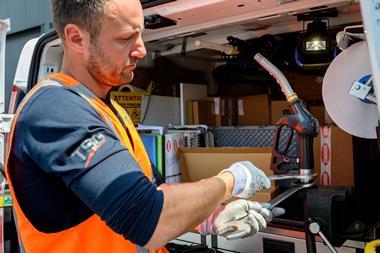

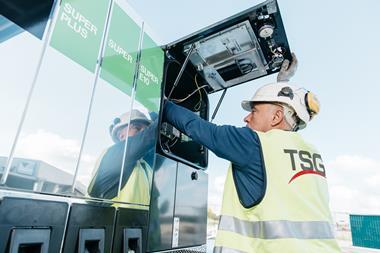
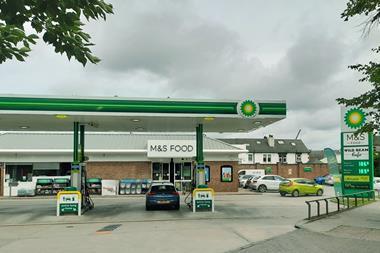
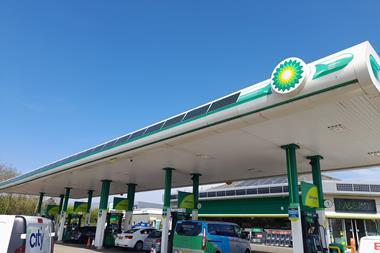
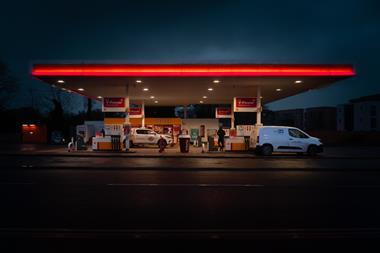
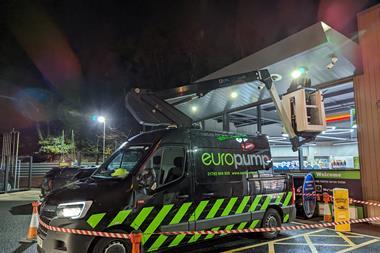
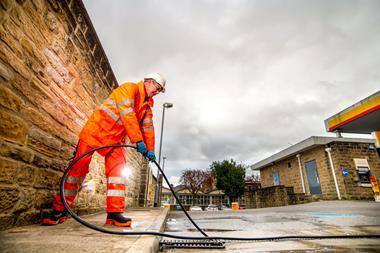
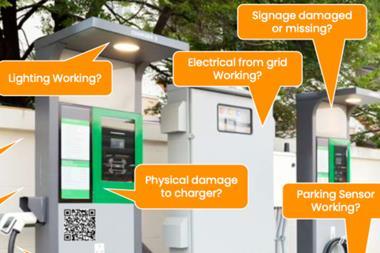
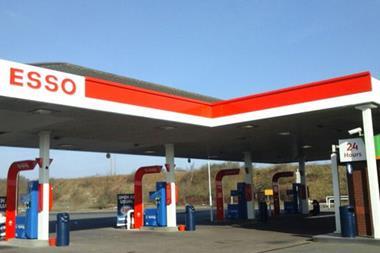
No comments yet